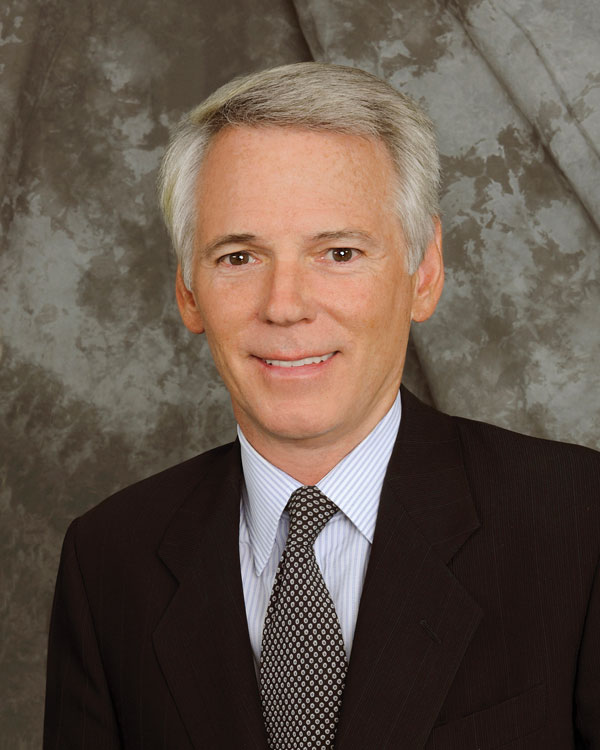Sean McManus believes that television sports might represent the last flash of spontaneity in today’s media world. Of course, in view of his role as chairman of CBS Sports, that belief comes as no surprise.
“Sports is live and unpredictable,” he explains. “Some of the greatest drama in all of the media happens in sports.”
McManus took on the chairman role in 2011 after a six-year run where he held the twin positions of president of CBS Sports and CBS News. His news division leadership is widely viewed as being one of the most successful in the history of U.S. journalism — 12 Emmy Awards, four Peabody Awards, three DuPont Awards and 29 Edward R. Murrow Awards from the Radio Television Digital News Association.
“I miss the big events, the elections, the conventions, the coverage of major news events,” McManus says about his leadership years at the news division. “And I miss the people involved with the shows. But my first love has always been sports television. I’m perfectly happy running the sports division.”
And that is no surprise. Born in New York City and raised in Westport, McManus attended Fairfield College Preparatory School and started working at ABC Sports as a production assistant and associate producer following his 1977 graduation from Duke University. He joined NBC Sports in 1979 as an associate producer assigned to major global events, including Wimbledon and the Tour de France, and, in 1982 at the age of 27, became vice president of program planning and development at NBC Sports, the youngest vice president in that network’s history, responsible for rights negotiations of the Olympics, the Breeders’ Cup and the NFL. In 1987, he became senior vice president of U.S. television sales and programming for Trans World International, the TV division of the sports marketing firm International Management Group, returning to TV broadcasting via CBS Sports in 1996.
In the seven years since his promotion to CBS Sports’ chairman, McManus has seen dramatic changes on the field and in the media industry that were unimaginable in 2011.
“The state of the sports television marketplace has been changing on an almost daily basis,” he says. “The cable business, especially ESPN and other cable sports channels, are focusing on a diminished subscriber base. Plus, there are all of the other opportunities that people have for watching TV — on Sunday evenings, for example, DVR viewing is way up.”
There is also the new politicization of sports, particularly in National Football League (NFL) games in which former San Francisco 49ers quarterback Colin Kaepernick divided the sport and the country by starting the trend of taking a knee during the pre-game performance of the National Anthem as a protest of police brutality aimed at people of color. McManus, whose network showcases the NFL, acknowledges that not everyone was pleased when other NFL players followed Kaepernick’s lead.
“It affected some viewers of the NFL, who didn’t think it was appropriate for them to do,” he says. “It hurt a little bit, but fans that stayed away came back.”
Still, the Kaepernick effect put a dent in NFL game attendance and viewing, but McManus diplomatically diverts blame from the star players to his programming choices for contributing to any evaporation of fan enthusiasm.
“I do think it’s clear that adding 10 games to the Thursday night package and two additional Sunday morning London games has clearly diluted the Sunday afternoon packages and affected the ratings,” he has said in a recent Wall Street Journal interview. “It’s just simple mathematics.”

Still, McManus is willing to put more football on CBS with the startup Alliance of American Football (AAF). CBS is scheduled to air the new league’s inaugural game on Feb. 9, which is the Saturday following CBS’s coverage of Super Bowl LIII, and the remainder of its 10-week regular season will be broadcast on the CBS Sports Network cable outlet.
McManus believes the AAF has the potential for a great future. “It is very well-funded, which a lot of startup leagues have not been,” he explains. “It is being led by (filmmaker) Charlie Ebersol, with consulting by (former NBC Sports chairman) Dick Ebersol, two of the greatest minds in the business, and with high-profile coaches and hundreds of really good football players. And they have a plan that is not just looking forward two to three years, but forward 10 years.”
Of course, no mention of McManus is complete without acknowledging his father, the legendary sports broadcaster James Kenneth McManus — better known by his professional name Jim McKay — who is widely considered the gold standard of his field. “I don’t think any one person fills the void,” McManus says about his father, who passed away in 2008. “A lot of people have the quality my father had, but he was really unique in broadcasting. I don’t think there will be another Jim McKay.”
But for tomorrow’s sports broadcasters who want to be the next Jim McKay — or the next Sean McManus, for that matter — the executive recommends persistence and perseverance.
“Knock on every door that you can,” he says. “When the first opportunity comes along, take it. It’s a very difficult industry to get into.”
For more, visit cbssports.com.





